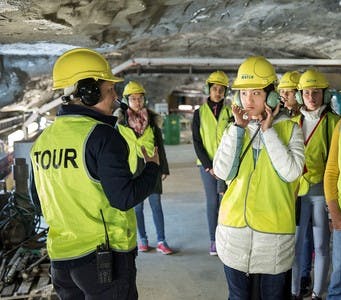Water chemistry online - Stage 6 Chemistry resources
What is Water chemistry online?
Looking for inspiration for a Depth Study? Water chemistry online gives you ideas, learning tools and resources to explore how we apply real world science.
Choose from three Stage 6 Chemistry Depth Study investigations looking at:
1. Drinking Water Depth Study - explore pH, buffers and chemical techniques we use to ensure drinking water quality and protect public health.
2. Wastewater Depth Study - explore separation techniques used in treating wastewater, as well as the need for chemical monitoring to protect the environment.
3. Recycled Water Depth Study - explore different types of polymers and how we use them in flocculation, dewatering and membranes contributing to sustainable environments and livable cities.
Getting started?
- Sign up with your school email* and check out our video highlighting key features of this page. *You are only required to provide the required information indicated by the asterisks on the registration form. School emails will only be able to participate in our Q&A.
- Check out our sample timelines, lesson plans and assessments to help you deliver our Depth Study programs.
- Start asking questions, share your stories and test your knowledge.
What will you find on Water chemistry online?
Discover
Learn the chemistry behind water management and why it's important. Watch this video to set the scene.
Explore how we put theory to practice and how you can replicate real world science in the classroom. Why not try our practical investigations.
Drinking water - Practical investigation example
Ask questions
This is a great place to ask about things you can't find easily in your textbooks, about Sydney Water, water management and the water industry.
Share feedback and ideas
You'll also be able to engage with us, other students and teachers. You could leave study tips, present your depth study projects or give feedback on our content.
Want to know more about our Education resources or book a virtual conference for your depth study contact Education@sydneywater.com.au.

















